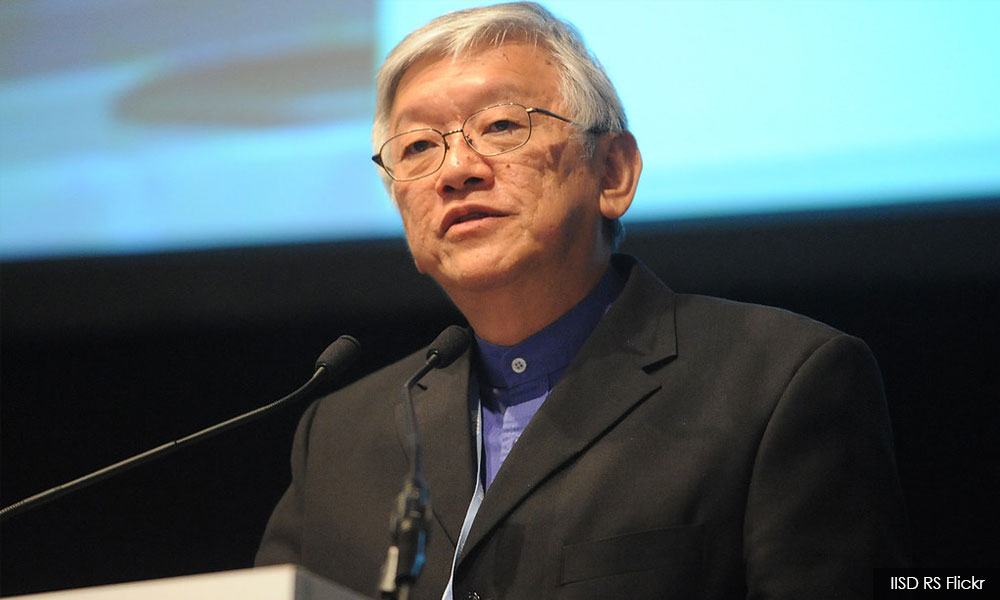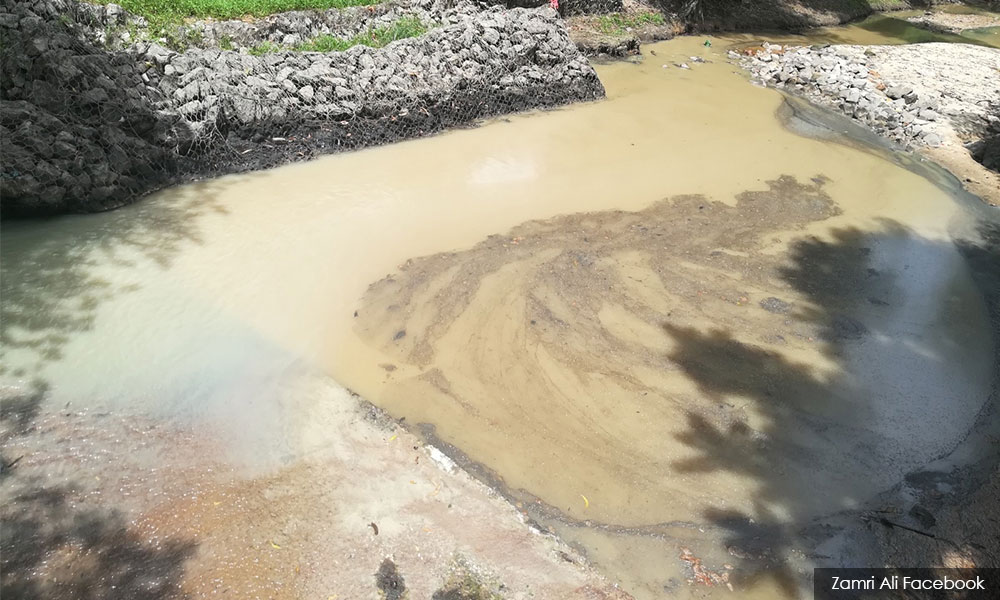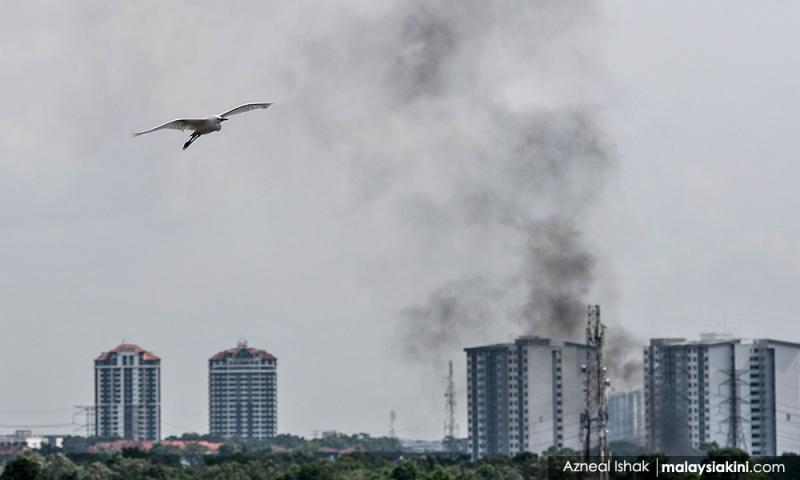LETTER | Rethink development paradigm in averting future crises
LETTER | It is Earth Day on April 22. It is a day to remember Mother Earth and how we treat her. This time, Earth Day is happening during the time of Covid-19, when the world economy has been put on brakes, with lockdowns in place to counter the devastating health impacts of the pandemic.
It is also a time when greenhouse gas emissions and pollution levels have come down the world over, which have not been possible before. As a recent editorial in The Guardian (UK, March 14) revealed, “the brakes placed on economic activities of many kinds, worldwide have led to carbon emission cuts that would previously have been unthinkable: 18 percent in China between February and March; between 40 percent and 60 percent over recent weeks in Europe”.
We have also seen media reports and videos of clearer and cleaner skies, seas, rivers and waterways, and urban spaces seeing the return of animals and birds as traffic and noise have gone away.
In Malaysia, Environment and Water Minister Tuan Ibrahim Tuan Man was reported as saying that the Air Pollutant Index (API) levels dropped 14 percent to record a “clean index” while 28 percent of 29 automatic water monitoring stations’ readings showed a real-time improvement in water quality, during the movement control order (MCO) from March 18 to April 14.
The improved API reading has been attributed to a drastic decrease in activities that lead to emissions such as vehicles, industrial stacks and open burning. Studies also show that land surface temperatures have also reduced in cities, thanks to the MCO.
All these positive effects are the unintended consequences of the Covid-19 pandemic because of the lockdowns. Regrettably, what many governments have not been able to do in the past in addressing environmental problems, has been made possible through responses to a major health crisis due to a novel coronavirus. The virus itself is believed to have emerged from environmental mishandling, viz, the trade and consumption of wildlife by humans.
Major landmark reports from the UN have previously warned about the emergence or re-emergence of infectious diseases due to mainly increasing human encroachments on natural environments such as land clearing and habitat fragmentation, reductions in biodiversity (including the loss of natural predators of organisms that transmit disease), current practices in livestock and poultry production and wildlife trade.
Clearly, what this reveals is that our current economic and development model continues to be unsustainable with negative consequences not only on our quality of life but threatens our continued existence on earth.
Indeed, we must learn from what we now know and correct the course, as we plan our exit strategies from the pandemic and as we chart the economic recovery.

It is indeed timely to recall the wise and far-sighted warnings of the late Martin Khor (photo), a leading economist, and environmental activist - “The predominant development model places emphasis on economic and commercial activities, whilst treating health and environmental problems as side effects that can be dealt with, piecemeal, when they arise. This should not be the case. These ‘side effects’ are going to overwhelm the ‘mainstream’ objective of economic growth if we do not take them more seriously.”
Indeed, the Covid-19 health crisis has overwhelmed the mainstream objective of economic growth. In addition, some of the environmental “side effects” can be expected to do the same if we do not deal with them urgently and seriously.
One example is that of water scarcity, which is a persistent problem faced in many parts of the country. Currently, the situation is dire in the northern states such as in Kedah, as farmers are suffering, with grave consequences for Malaysia’s rice bowl. In Penang, authorities are praying for rain to replenish the very low water levels in the dams in the state. Without sufficient water, the economic consequences will indeed be severe. The water crisis is compounded by climate change, with impacts that will be catastrophic not only for our economy but to human lives as well.
For example, recent scientific reports have provided enough warning that coastal communities worldwide must prepare themselves for much more difficult futures than may be currently anticipated, due to increasing rates of melting of major ice sheets such as from Greenland and the Antarctic.
Yet, what is most startling is the apparent lack of sufficient preparedness in many cities and countries around the world, including our own in Malaysia, in addressing these possible climate impacts. More than two in three cities around the world are already noticing the effects of climate change, from more heatwaves to worsening flooding, but few have effective plans in place to deal with the threats.
It is not sufficiently realised that the environment and natural resources are the foundation of the economy and they set the parameters of how much economic growth can be sustained.
For far too long, we have heard the popular mantra that “we will have economic growth without adversely affecting the environment, and will pursue sustainable development” but in reality, much remains to be done to correct the current course.
What is needed are transformative commitments through paradigm shifts in our existing irrational production systems and consumption patterns, grounded in genuine sustainable development that meet the economic, environmental and social imperatives. Economic development, job creation, etc are important but have to be balanced and re-oriented with environmental concerns and quality of life being at the centre of decision-making.
Sadly, even as we are witnessing a global economic downturn, we are still seeing the promotion of business-as-usual approaches, such as the continuation of mega-projects like the hugely expensive Penang Transport Master Plan and the Penang South Reclamation project which will destroy invaluable fishery resources and marine biodiversity irreversibly.
The business-as-usual approach has to change. Some critical areas where priority must be given are in the following.
First, we must take on climate change seriously and ensure greater ambition and action as regards mitigation and adaptation measures. We are aware that the previous government had begun various initiatives such as in having a Climate Change Council and a Climate Change Centre, enabling climate legislation as well as in devising a National Adaptation Plan etc. These positive initiatives should be expedited and implemented and not stymied by the new government.
Second, we need to urgently tackle the related issues of forest and soil conservation, river management, flood prevention and mitigation, and in ensuring enough water supply, in an integrated manner. Forests and trees are the foundation of ecology, water supply and management and biodiversity. The conversion of forests, especially on hills, for either logging, plantations or other commercial projects, should be stopped or drastically reduced as it has gone too far.
Surely no commercial activity can be more important than conserving the forests and protecting our soils. They help in flood prevention which cost millions if not billions to clean-up and rehabilitate. In addition, flood prevention must also include turning our urban areas into “sponge cities”, with steps taken to significantly increase rainwater to penetrate underground rather than be swept into overflowing rivers, thus causing flash floods.
These measures can include increasing fields and parks, planting trees, and making pavements and roads permeable, so that water can be absorbed into the ground rather than running off. The rainwater can also be collected in large storage tanks underground for later use, as done in other countries. These green measures and infrastructure will cost money, but investing in them would be money well spent and there are international funds available for such measures.
It is regrettable that too much emphasis is given in constructing highways and concrete buildings. What is now needed are investments in rehabilitating damaged hillsides and forests, conserving watersheds, and building green infrastructure, to prevent floods and to conserve, save and store water and build climate resilience.

The third priority is the control of pollution and toxic products, chemicals and wastes. We have experienced serious cases of air and water pollution. The Sungai Kim Kim (photo) case is a grim reminder of what toxins in the environment can do to the health of the public and school children.
We have done much in efforts to reduce plastics use and imports. We cannot afford to slow down now and must step up to ensure that the gains made thus far are not reversed and we do not become complacent.
The Environmental Quality Act and regulations thereunder are supposed to be under review. Efforts in this regard should continue and not be halted. We need an improved Environmental Protection Act which addresses the weaknesses of the previous legislation, including in relation to regulations on environmental impact assessments.
Also critical are issues such as energy (on the need to switch to more renewables); replacing polluting technologies with environmentally sound technologies; protecting the marine environment and wetlands; conserving biodiversity, fauna and flora; and replacing chemical-based agriculture with sustainable agriculture.
These are huge challenges but are needed more than ever because not enough attention and resources have been given to them in the past.
We can no longer view the environment and ecology as side issues but must make them the centre of decision-making if we are to prevent future calamities that result in catastrophic economic and health impacts.
The writer is the president of Sahabat Alam Malaysia.
The views expressed here are those of the author/contributor and do not necessarily represent the views of Malaysiakini.
Keep up with the latest information on the outbreak in the country with Malaysiakini's free Covid-19 tracker.
Malaysiakini is providing free access to the most important updates on the coronavirus pandemic. You can find them here.
Help keep independent media alive - subscribe to Malaysiakini.
RM12.50 / month
- Unlimited access to award-winning journalism
- Comment and share your opinions on all our articles
- Gift interesting stories to your friends
- Tax deductable
